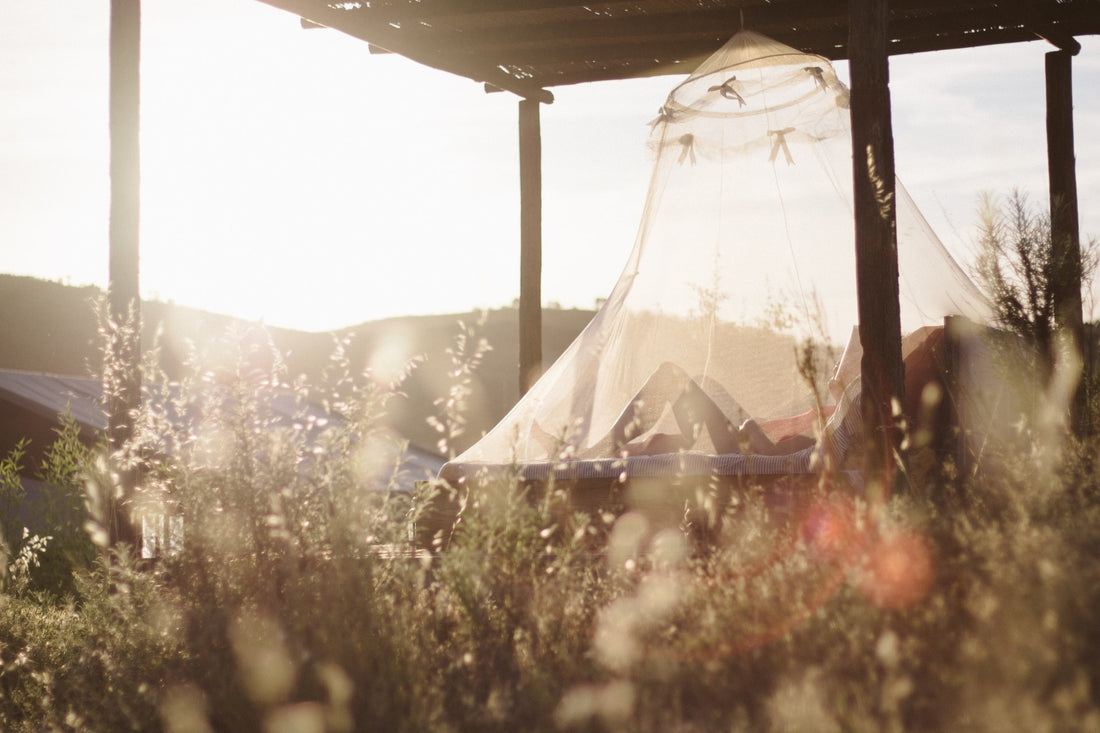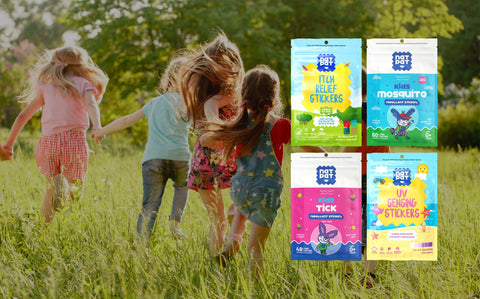Home Remedies For Mosquito Bites That Work
- person Gary Tramer
- calendar_today
- comment 0 comments

We all experience mosquito bites. They, unfortunately, are a part of life, one that comes around every summer and sometimes stays too (far) late into autumn. Due to their commonality, mosquitoes have inspired the creation of more than a few products.
People do not like to be bothered by them, and understandably so. This has led to the invention of tons of products to stop that constant itching and scratching sensation.
You may have heard of things like mosquito coils, citronella candles, mosquito repellent sprays, and plenty else. But those are all geared to preventing the bite in the first place. What happens when it’s already too late?
Continue reading to learn about some home remedies to resolve intolerably itchy mosquito bites that you already have in your house.
Mosquitoes: A Bug Bite That Bites
While "mosquito" is one insect name familiar in pretty much every household, they are often confused with stinging bugs like wasps and bees. These are all regular sources of irritation, but the cause and effect of the wounds they leave behind are quite different.
So what should you know about mosquitoes and their bites?
- Only the females bite you, and they do so to get your blood so they can lay eggs.
- The mouth of mosquitoes, and the part stuck into you, is called the proboscis.
- When the proboscis punctures through the skin to get the blood, some saliva from the mosquito’s mouth is left behind. This mosquito saliva is built up of specific proteins, which lead to the mild reactions that most people feel (the bump, swelling, and itchiness).
Something To Fear, Something To Fight
The Center for Disease Control, aka the CDC, has made it clear that mosquitoes spread diseases through their dreaded bites. A few of these diseases are Malaria, Yellow Fever, and the West Nile Virus.
It's time to put these pests into the metaphorical hot water: Anything spread by mosquitoes is something you do not want, and neither do your children.
The good news is that there are easily accessible ways to protect yourself and help the bite progress right along to getting better. Some of these over-the-counter ways are already in your house.
First, let’s look at how we can protect ourselves in the first place, and if we do get bitten, how we can erase the itch.
What’s Used For Protection Now?
There are two types of mosquito repellents used. These two groups can fit a lot of different stuff under their umbrellas. On the most basic level, there are insect repellents that grow naturally and keep mosquitoes away with no prompting, and then there are repellents that were created by humans in a lab.
The lesson here? Prevention is key.
Chemical Sprays
Chemical mosquito repellents were not even in existence a hundred years ago. They may seem commonplace and like they have always existed, but that is only because they have existed for most or all of our lives.
Chemical mosquito repellent refers to the harsh man-made chemicals which do not exist in nature. You could not go out in the woods and find DEET unless someone else dropped their can of bug spray in the leaves.
In the realm of chemical mosquito repellent sprays, DEET has been the leading competitor for years. This is simply because it is older. Picaridin is the other big name and has been around only half as long as DEET, and we are still not a fan.
Natural Resources
Okay, so what about the natural stuff?
Repellents derived from plants have begun to rise in popularity once again. Plants like lavender and mint were used long before the guys who invented DEET were born.
Repellents engineered in a lab have only existed for roughly 80 years. That’s one lifetime. Natural resources have been used since the dawn of man and still work effectively.
There are plenty of things that repel mosquitoes, along with a horde of other bugs like spiders, fleas, and ticks. Oh my.
These things, or more accurately plants, are so common that you probably already have it in your house, and if not, you could find it at the store and bring it home in less than an hour.
What are these natural repellents?
Glad you asked; here are some popular ones:
- Lavender
- Lemon Eucalyptus (or lemon juice)
- Fresh Basil/Basil Leaves
- Mint or Peppermint Oil
- Tea Tree Oil
Now you might be thinking, “Hey, I could make my own repellent!” but the truth is you’d need a potent blend with just the right essential oils and a carrier oil to effectively (and safely) protect anyone. Unfortunately, it can be hard to find such a blend; it’s a process of a lot of trial and error.
That's why we experimented thoroughly, so you do not have to! At The Natural Patch Co., we created BuzzPatch as an all-natural mosquito repellent made for protection (and a little bit of style and fun).
BuzzPatch comes in cool colors and has emoji prints, so your kids will love applying mosquito repellent. It can last up to eight hours, and it goes right on clothes, so when you stick it down, it stays there.
The Stuff At Home You Can Use
So we have talked about how to protect yourself before you get bitten, but what happens if you’ve already sustained a few bites? Well, then it’s time for a big old tablespoon of itch relief.
Can I Use This Natural Stuff as Repellent?
Yep, there is a boom of repellents that use natural resources to protect your kids. Natural repellents have been used for hundreds of years successfully and can still be trusted today.
Find Relief With Ease
So, we know that natural resources work and are pretty easily accessible, but what works? Which plants and food in your house are best?
Here are a few items you have in your home that can help relieve the itchiness of mosquito bites:
- Ice Pack- Though good at anti-inflammation, ice shouldn’t be on your skin long. If you use a paper towel or buffer, you can leave the cold compress on a little longer.
- Honey
- Aloe Vera
- Baking Soda - This must be mixed with enough water to be useful. Baking soda paste should only stay on the affected area for ten minutes.
- Coconut Oil
- Onion
- Garlic
- Apple Cider Vinegar
- Witch Hazel - You just need a little bit on a cotton ball, and you are set to go.
Now again, you may have all the ingredients at home, but these remedies require a little bit of prep to be effective in relieving your itches. While proven to be useful over centuries, each remedy does require time to get it prepared in the right way.
Seeking Solutions?
The solutions listed above aren’t particularly kind to the busy person on the go.
Sure, ice just needs to be applied the right way. Some of the others need a little water or oil added in, but that is still precious time you will never get back.
Kids have the amazing potential to make big deals out of things we see as small (including bug bites). Adults have this ability too, but usually with less pizazz. In the time it would take to do any of the solutions above, you could have quickly whipped something out of your pocket or purse and solved the problem easily.
A Quick Fix That Sticks
No, bandaids and any anti-itch cream are not that fast, but there is something that is.
Introducing... MagicPatch, a sticker that comes in a small carrying case that can be brought anywhere you go without any hassle.
MagicPatch lasts up to seven days, too. That’s a lot longer than any remedy listed above. Plus, it is all-natural, just like those remedies. MagicPatch uses specialized grid technology to relieve itching by lifting the biochemicals out of the bug bite. No compounds or harsh chemicals included.
Forget about having to cook up a solution. Do not worry about having to keep a boxful of bandaids and an entire tube of anything nearby for those mosquito bites. Just keep a small container of MagicPatches, instead. Not to mention that they’re waterproof so that you don’t have to reapply after every bath and dip into the pool.
There are some ways to relieve the itchiness of mosquito bites that have been around for a long time. All these ways are pretty effective but require some prep to work. MagicPatch and BuzzPatch do not need anything but to be pulled out and stuck on. Safe, effective, and almost as important: super fun.
Sources:
13 Home Remedies for Mosquito Bites: Ways to Stop the Itch | Healthline
Mosquito Bite Symptoms and Treatment | CDC
A Guide To The World Of Mosquito Repellents | NPR
Mosquitoes Stab Animals with a Syringelike Proboscis | Scientific American
Prevent Mosquito Bites | Division of Vector-Borne Diseases | CDC

